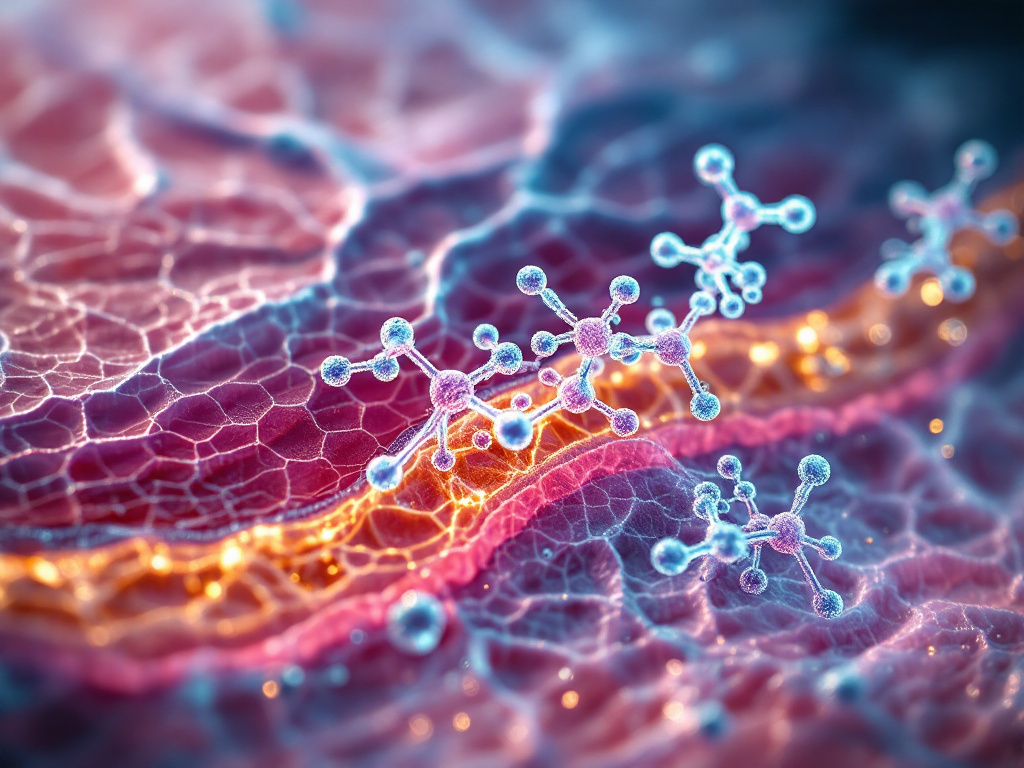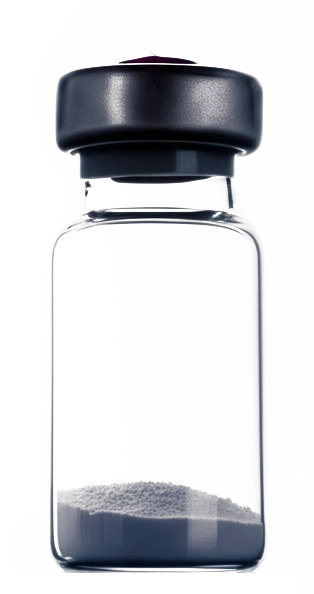
Peptides are short chains of amino acids that act as building blocks for proteins like collagen, elastin, and keratin. These proteins are essential for maintaining skin structure, elasticity, and overall health. When skin is damaged due to environmental factors, aging, or skin conditions, the production of these proteins can be compromised. Peptides step in as messengers, signaling the skin to produce more collagen and elastin. This signaling process helps to repair damaged skin by promoting cell turnover, reducing the appearance of scars, and improving skin texture.
The use of peptides in skincare is backed by scientific research demonstrating their ability to penetrate the skin and stimulate collagen synthesis. Different types of peptides target specific skin concerns. For example, signal peptides tell the skin to produce more collagen, while carrier peptides deliver essential minerals like copper to the skin, which are necessary for wound healing and enzymatic processes. Matrixyl, Argireline, and copper peptides are among the most well-known and researched peptides used in skincare formulations.
To effectively incorporate peptides into your skincare routine, look for serums, creams, or lotions that list specific peptides as key ingredients. It is also important to use these products consistently, as the skin repair process takes time and requires ongoing support.
Exposure to ultraviolet (UV) radiation from the sun is a major cause of skin damage, leading to premature aging, inflammation, and an increased risk of skin cancer. Peptides play a crucial role in mitigating these effects by supporting the skins natural repair mechanisms. UV damage often results in the breakdown of collagen and elastin fibers, causing wrinkles, sagging, and loss of skin elasticity.
Peptides stimulate the production of collagen and elastin, helping to restore the structural integrity of the skin. Certain peptides also possess antioxidant properties, which help to neutralize free radicals generated by UV exposure. Free radicals can cause oxidative stress, damaging skin cells and accelerating the aging process. By scavenging these free radicals, peptides help to protect the skin from further damage and promote healing.
Additionally, some peptides can reduce skin inflammation triggered by UV radiation. Inflammation is a key factor in the development of sun damage, contributing to redness, swelling, and discomfort. Peptides with anti-inflammatory properties can soothe the skin and promote a more rapid recovery from sunburn and other forms of UV-induced damage.



The skin barrier is the outermost layer of the skin, acting as a protective shield against environmental aggressors such as pollutants, toxins, and pathogens. It also helps to retain moisture, preventing dehydration and maintaining skin hydration. A healthy skin barrier is essential for overall skin health, preventing issues like dryness, irritation, and sensitivity.
Peptides enhance skin barrier function by promoting the production of essential lipids and proteins that make up the barrier. These include ceramides, cholesterol, and fatty acids, which are crucial for maintaining the integrity of the stratum corneum, the outermost layer of the skin barrier. Peptides stimulate the synthesis of these components, helping to repair and strengthen the barrier. This results in improved moisture retention, reduced trans epidermal water loss (TEWL), and increased resistance to environmental irritants.
Moreover, peptides can modulate the skins immune response, reducing inflammation and preventing barrier disruption. Chronic inflammation can weaken the skin barrier, making it more susceptible to damage. By calming inflammation, peptides help to maintain the barriers structural integrity and functional capacity.
Eczema, also known as atopic dermatitis, is a chronic inflammatory skin condition characterized by dry, itchy, and inflamed skin. One of the key features of eczema is a compromised skin barrier, which allows irritants and allergens to penetrate the skin more easily, triggering inflammation and exacerbating symptoms. Peptides can play a significant role in barrier restoration for individuals with eczema by promoting the repair and strengthening of the skin barrier.
Peptides help to replenish the essential lipids that are often deficient in eczema-prone skin. By stimulating the production of ceramides, cholesterol, and fatty acids, peptides help to restore the skin barriers natural protective layer. This improved barrier function reduces the penetration of irritants and allergens, minimizing inflammation and alleviating eczema symptoms. Additionally, peptides with anti-inflammatory properties can help to soothe the skin and reduce redness and itching associated with eczema.
When choosing skincare products for eczema, look for formulations that contain peptides along with other barrier-repairing ingredients such as ceramides, hyaluronic acid, and shea butter. These ingredients work synergistically to hydrate the skin, reduce inflammation, and restore the skin barriers integrity.



Rosacea is a chronic skin condition characterized by facial redness, visible blood vessels, and sometimes small, red, pus-filled bumps. Sensitive skin is often associated with rosacea, as the skin is more prone to irritation and inflammation. Peptides can offer support for rosacea by reducing redness and inflammation, strengthening the skin barrier, and improving overall skin health.
Certain peptides have anti-inflammatory properties that can help to calm the skin and reduce redness associated with rosacea. These peptides work by inhibiting the release of inflammatory mediators, such as cytokines, which contribute to the symptoms of rosacea. By reducing inflammation, peptides can help to alleviate redness, swelling, and discomfort.
Furthermore, peptides can strengthen the skin barrier, making it more resistant to irritants and allergens. A compromised skin barrier is a common feature of rosacea-prone skin, allowing external factors to trigger inflammation and exacerbate symptoms. By reinforcing the skin barrier, peptides help to protect the skin from these triggers, reducing the frequency and severity of rosacea flare-ups.
Skin inflammation is a common issue for individuals with sensitive skin, often resulting in redness, itching, burning, and swelling. Peptides can play a crucial role in managing skin inflammation by modulating the skins immune response and reducing the production of inflammatory molecules. Specific peptides have demonstrated the ability to inhibit the activity of pro-inflammatory enzymes, such as cyclooxygenase (COX) and lipoxygenase (LOX), which are involved in the inflammatory process.
By targeting these enzymes, peptides help to reduce the production of inflammatory mediators, such as prostaglandins and leukotrienes, which contribute to the symptoms of skin inflammation. This can lead to a reduction in redness, itching, and swelling, providing relief for individuals with sensitive skin. Additionally, peptides can promote the production of anti-inflammatory cytokines, which help to balance the skins immune response and reduce overall inflammation.
When choosing skincare products for sensitive skin, opt for formulations that contain peptides along with other soothing and calming ingredients such as aloe vera, chamomile, and green tea extract. These ingredients work synergistically to reduce inflammation, hydrate the skin, and promote overall skin health.
Here are the answers to the questions posed in this article, providing a quick reference for understanding the benefits of peptides for skin repair, barrier strengthening, and sensitive skin management:
Peptides are short chains of amino acids that stimulate collagen and elastin production, helping to repair damaged skin by promoting cell turnover and improving skin texture.
Peptides support the skins natural repair mechanisms by stimulating collagen and elastin production, neutralizing free radicals, and reducing skin inflammation caused by UV radiation.
Skin barrier function is crucial for protecting against environmental aggressors and retaining moisture. Peptides enhance it by promoting the production of essential lipids and proteins, improving moisture retention and increasing resistance to irritants.
Peptides help replenish essential lipids deficient in eczema-prone skin, reducing the penetration of irritants and allergens, minimizing inflammation, and alleviating eczema symptoms.
Yes, certain peptides have anti-inflammatory properties that calm the skin, reduce redness, and strengthen the skin barrier, offering support for rosacea-prone skin.
Peptides modulate the skins immune response, reducing the production of inflammatory molecules and promoting anti-inflammatory cytokines, which helps to alleviate redness, itching, and swelling in sensitive skin.

